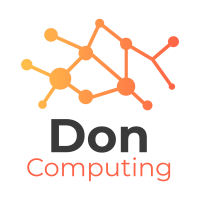training
Don Computing excels in engineering training, particularly in areas like CFD, FEA, Process Modeling, Reservoir Simulation, and Molecular Modeling. Our expertise encompasses a deep understanding of complex physics principles essential for accurate simulations. We specialize in mesh generation and refinement, ensuring efficient and precise models. Our training emphasizes the importance of accurate material property characterization and the correct application of boundary conditions and loads. We provide comprehensive software training, enabling proficiency in various FEA/CFD tools.
Don Computing recentlyed offered a training on “Keeping Up with Advancements”: The field of simulation is rapidly evolving. Staying updated with the latest methodologies, software updates, and best practices is a continuous challenge.
Our approach includes teaching effective result interpretation and validation, ensuring simulations reflect real-world scenarios accurately. We address computational limitations and resource management, optimizing simulation processes. Integration with CAD tools for design optimization is a key part of our training. We also focus on modeling non-linear behaviors, a critical aspect of advanced simulations. Keeping up with the latest advancements, we ensure our training remains relevant and cutting-edge in the rapidly evolving field of simulation technology. Don Computing collaborates in hosting enriching joint training sessions, workshops, and conferences, bringing together industry experts and academics to foster knowledge exchange and professional development. These events are renowned for their cutting-edge content, practical insights, and opportunities for networking and innovation in various technical fields.

Understanding Complex Physics
Grasping the complex physics behind FEA and CFD simulations is crucial. Trainees often struggle with the theoretical aspects that underpin these tools.

Mesh Generation and Refinement
Creating an efficient and accurate mesh is a common challenge. Understanding how to refine the mesh without excessively increasing computational costs is key.

Material Property Characterization
Accurately inputting material properties is essential for realistic simulations. Trainees must learn how to source and apply correct material data.

Boundary Conditions and Load Applications
Incorrectly setting boundary conditions and loads can lead to inaccurate results. Understanding the physical scenario being modeled is vital.
Software Proficiency
Each FEA/CFD software has its unique interface and functionalities. Trainees need time to become proficient in using these complex tools effectively.
Result Interpretation and Validation
Interpreting results correctly and validating them against real-world data or experimental results is a significant challenge.
Computational Limitations
Understanding the computational limitations and effectively managing resources like processing power and memory is crucial for efficient simulation.
Integration with CAD Tools
Efficiently integrating FEA/CFD tools with CAD software for design optimization is a skill that needs honing.
Modeling Non-linear Behaviors
Simulating non-linear behaviors like plastic deformation, large strain, or turbulent flow can be complex and requires advanced understanding.




